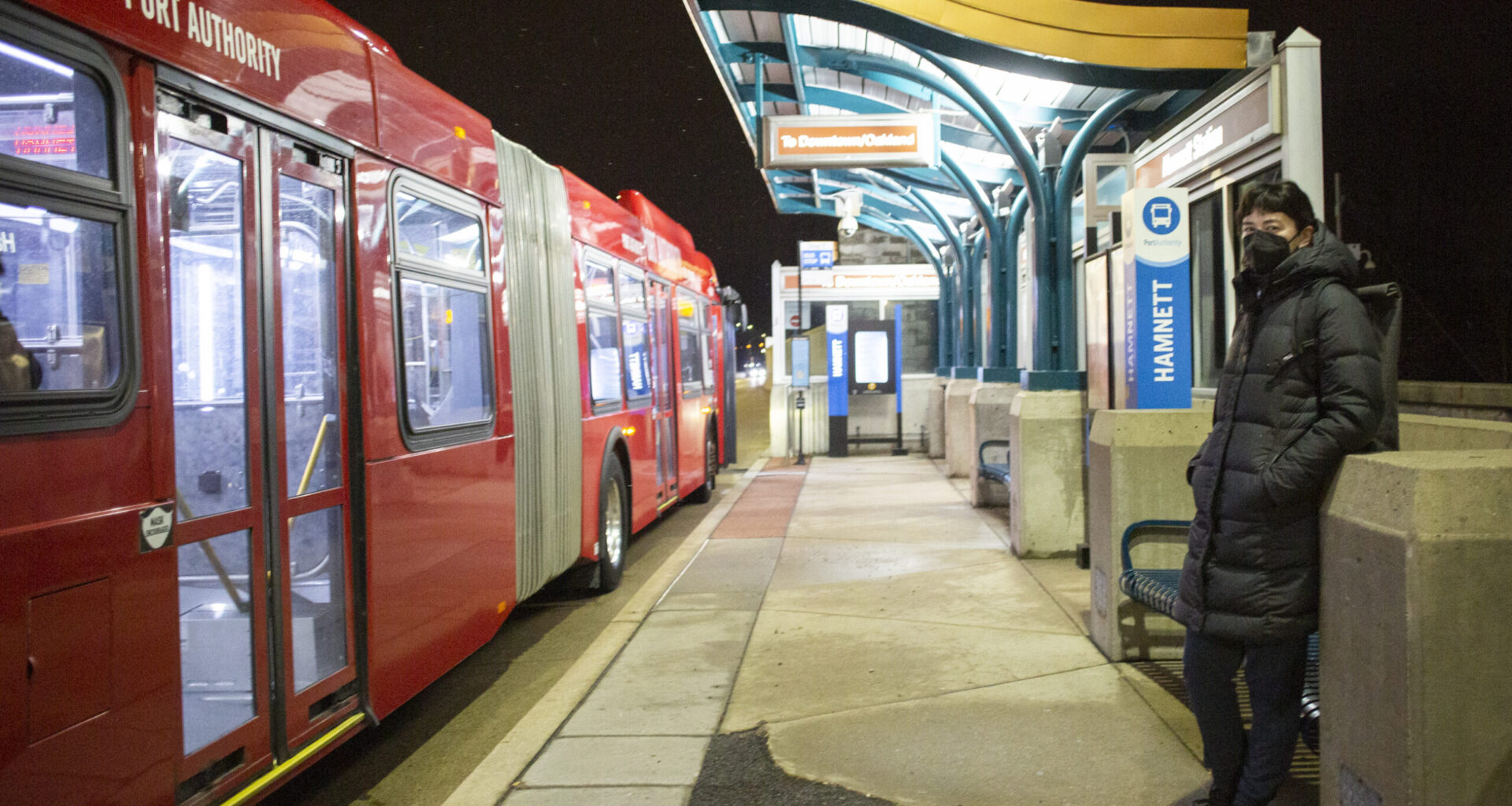Pittsburgh Regional Transit officials heaved a big sigh of relief last month when the agency avoided sharp service cuts and massive layoffs after the state granted permission to use capital funds to help pay for operating expenses.
Now, reality is setting in on what capital projects will be canceled or delayed because $106.7 million has been shifted to maintain service for the next two years. Although the agency already has a backlog of more than $2 billion in capital projects to repair, replace or expand parts of the transit system, it released a partial list of projects Thursday worth $35.5 million that will be kicked down the road again.
Chief Financial Officer Donminika Brown told the board’s Finance Committee the agency will cancel the purchase of 30 new 60-foot buses that burn clean diesel fuel at a savings of $15.7 million. Other projects that will be deferred from 2026 include rehabilitating the Library Line on the light rail system until 2032 ($1.9 million), work at the Ross maintenance garage to move the agency toward zero emissions until 2030 ($4.1 million), restoring a bridge on the West Busway until 2028 ($5.6 million), upgrading stations on the Martin Luther King Jr. East Busway until 2030 ($7 million), redesigning the Hamnett Station along the East Busway in Swissvale until 2027 ($700,000), and postponing indefinitely an upgrade to computer servers ($500,000).
All projects related to safety and projects that are ready for construction such as improvements to light rail stations at Station Square on Pittsburgh’s South Side and Dormont Junction in Dormont will continue as planned. Relocating the Wilkinsburg station on the East Busway farther away from Homewood will not move forward yet because it requires work on a bridge on Penn Avenue that will be postponed.
Brown told the committee that other projects will be identified throughout the next two years for postponement or elimination, stressing the capital budget is “dynamic at all times” so that emergency projects can be added. Additionally, she said the agency will change its accounting method so that it pays for projects as work is performed rather than requiring the full cost of a project to be available before work can start.
“We are still identifying the other projects,” Brown said in an interview after the meeting. “It’s something that is going to be ongoing.
The agency, which was facing a $100 million deficit without the proposed cutbacks, decided to ask for permission to use capital funds when it became obvious the state Legislature was not going to increase the state subsidy for transit this year. Almost all transit agencies across the state were facing the same problem because emergency federal funding awarded during the pandemic has been spent and the state is two years late in passing a new transportation funding bill.
Using the capital funds now kicks the can down the road for two years in hopes that the state will have funds available then.
As CEO Katharine Eagan Kelleman has in the past, Brown stressed that delaying or canceling capital projects is a last resort to prevent service and staffing cuts.
“Sadly, as much as we want to maintain service, we need these projects, too,” she said. “[Delaying capital work] keeps us from being able to grow.”
The agency has huge capital needs such as replacing its 81 light rail vehicles, which could cost more than $500 million, building another regional maintenance garage (more than $150 million) and replacing the long-term maintenance facility in Manchester ($250 million). Without those projects, the agency is unable to add more vehicles to its bus network to expand service because it has no place to store and maintain them.
Brown said when the agency pays off its long-term debt in 2029, it will look at the possibility of issuing bonds to help pay for some of that work.
“We have vast capital needs,” Brown told the committee.
Ed covers transportation at the Pittsburgh Post-Gazette, but he’s currently on strike. Email him at eblazina@unionprogress.com.



